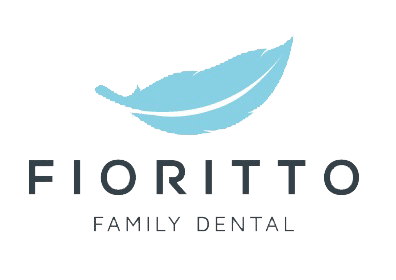Dry mouth can happen for a number of reasons: nervousness, medications, allergic reaction and more. Dry mouth symptoms typically resolve as soon as the trigger goes away, whether that’s finishing a course of medication or getting a public speaking obligation over with.
When dry mouth persists, it can negatively affect your dental health. This condition is called xerostomia. It’s a common condition—but if it lasts for longer than a few days, it may be time to visit your Fioritto Family Dental!
Here’s what you need to know about dry mouth and dental health.
Overview and causes of dry mouth
Dry mouth, or xerostomia, is an uncomfortable condition. It occurs when your salivary glands aren’t producing enough saliva.
You may feel a dry, burning or sticky sensation in your mouth, or a sore throat. People with dry mouth often have cracked or chapped lips, and may have trouble speaking, chewing and swallowing.
Other symptoms of dry mouth include; a rough tongue, mouth sores, infection, bad breath (halitosis), hoarseness and an inability to keep dental prostheses (such as dentures) in the mouth.
Medication is by far the most common cause of xerostomia. According to the American Dental Association, “more than 400 over-the-counter (OTC) and prescription medications can contribute to or exacerbate oral dryness, including antihistamines (for allergy or asthma), antihypertensive medications, decongestants, pain medications, diuretics, muscle relaxants, and antidepressants.” Chemotherapy of the head and neck may also contribute to dry mouth.
Other causes include aging, autoimmune disease, head or neck nerve damage, stroke, hypertension, tobacco use, or excessive caffeine and spicy food consumption.
How dry mouth can affect your oral health
Occasional dry mouth will not harm your oral health. However, persistent dry mouth can have serious effects, including “difficulty tasting, chewing, swallowing, and speaking; it can also increase the chance of developing dental decay, demineralization of teeth, tooth sensitivity, and/or oral infections.”
Saliva helps to rinse away bacteria and food debris, thus, reduced salivary flow can make a big difference over time. If your dry mouth persists longer than a few days, schedule an appointment with your favorite Fioritto dentist. Be prepared to discuss your medical history, so your dentist can come up with a treatment plan.
Xerostomia treatment
Depending on the cause of your dry mouth, treatment may vary. Here are some general guidelines to reduce symptoms:
- Drink plenty of water and sugar-free, caffeine-free beverages
- Apply lip balm every two hours
- Suck on ice chips
- Avoid salty, spicy, dry, sticky and sugary foods
- Skip alcohol (including alcohol-based mouthwash) and tobacco
- Use a humidifier while sleeping
- Try sugar-free candy or gum
For persistent dry mouth, a salivary stimulant or artificial saliva may be prescribed. These help to keep the mouth moist if/when previous lifestyle adjustments have not been effective.
Your dentist will review your medical and dental health history before determining the best course of treatment. Lifestyle changes may be sufficient, or a combination of prescriptions and lifestyle changes may be necessary for optimal results.
Call Fioritto Family Dental today to discuss your dry mouth concerns. We look forward to helping you feel better!
